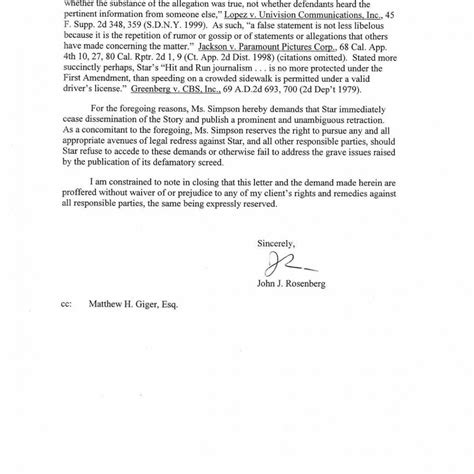Signing Off With Style: How To Sign A Cover Letter In English

As the saying goes, “first impressions last,” and this is especially true when it comes to job applications. Every aspect of your cover letter is important, including how you sign it off. Signing off with style can leave a lasting impression on potential employers, showing that you are professional, confident, and attentive to detail. In this post, we’ll discuss the best practices for signing a cover letter in English.
1. Use a Professional Closing Phrase
When it comes to signing off a cover letter, it’s important to use a professional closing phrase that conveys your appreciation for the opportunity. Some common closing phrases include:
- Sincerely
- Best regards
- Yours truly
- Thank you
- Respectfully
2. Include Your Full Name
Always include your full name when signing off a cover letter for a job application. This helps to ensure that the potential employer can easily identify you and avoid any confusion with other applicants.
3. Use a Handwritten Signature
While it’s becoming increasingly common to sign cover letters electronically, using a handwritten signature can add a personal touch and show that you’re invested in the application process. If you’re sending your application by email, you can scan your signature and include it as an image.
4. Use a Legible Font
When signing off a cover letter, it’s important to use a legible font that is easy to read. Avoid using fancy or cursive fonts that may be difficult to decipher.
5. Proofread Your Closing
Before submitting your application, make sure to proofread your closing to ensure that there are no spelling or grammatical errors. A mistake in your closing can detract from an otherwise strong application.
6. Follow the Employer’s Guidelines
Some employers may have specific guidelines for how to sign off a cover letter. Make sure to carefully review the job description and any additional instructions before submitting your application.
7. Consider Adding a Postscript
A postscript, or P.S., can be a great way to add a final touch to your cover letter. This can be used to reiterate your interest in the position, highlight a specific qualification, or express your enthusiasm for the opportunity.
8. Keep it Concise
When signing off your cover letter, it’s important to keep it concise and to the point. Avoid including unnecessary information or fluff that may detract from your overall message.
9. Be Confident
When signing off your cover letter, be confident in your abilities and express your enthusiasm for the opportunity. This can help to convey your passion for the position and make a positive impression on potential employers.
10. Thank the Employer
Finally, make sure to thank the employer for considering your application. This can help to show that you are appreciative of the opportunity and invested in the application process.
Conclusion
Signing off a cover letter may seem like a small detail, but it can make a big difference in the overall impression you make on potential employers. By following these best practices, you can ensure that your closing is professional, confident, and impactful.
FAQs
Q: Can I use a different closing phrase?
A: While the phrases listed above are commonly used, you can use a different closing phrase as long as it is professional and appropriate for the situation.
Q: Is it necessary to include a handwritten signature?
A: While a handwritten signature can add a personal touch, it is not always necessary. If you are submitting your application electronically, you can use an electronic signature or simply type your name.
Q: Should I include my contact information in the closing?
A: While it is not necessary to include your contact information in the closing, you should make sure that it is included elsewhere in your application (such as in your header or on your resume).
Q: Can I use a different font for my closing?
A: While it’s best to use a legible font, you can use a different font for your closing as long as it is professional and easy to read.
